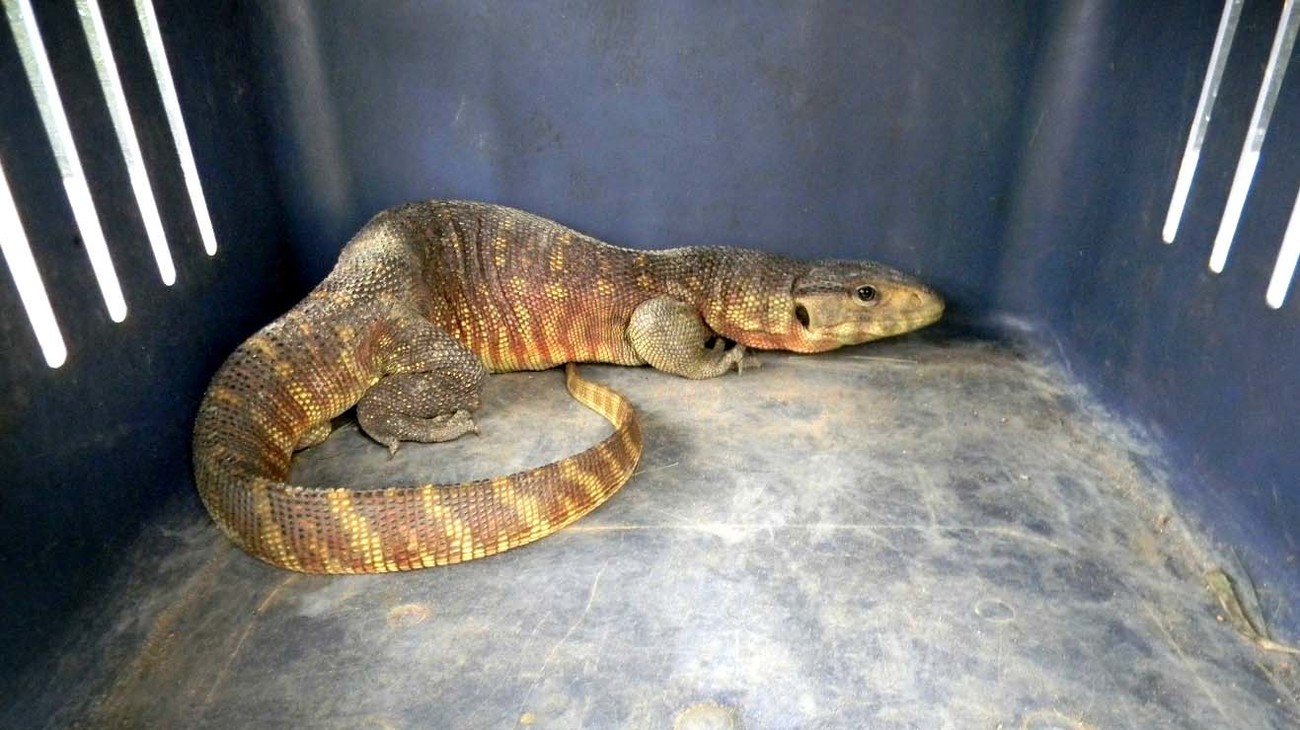grant awarded to improve the handling of confiscated wildlife to aid survival
grant awarded to improve the handling of confiscated wildlife to aid survival

Washington DC, 9 November 2021— Close to $1 million (U.S.) has been awarded to the International Fund for Animal Welfare (IFAW) by the U.S. Department of State’s Bureau of International Narcotics and Law Enforcement Affairs (INL) to help ensure live animals confiscated from the illegal wildlife trade are handled properly while in custody to improve recovery and strengthen judicial processes leading to prosecutions.
IFAW and three partnering organizations will develop technical resources on the safe handling of live animals during seizure or confiscation and will train frontline enforcement officers on best practices for animal welfare, evidence collection, and biosafety.
Project teams will also produce resources on international legal best practices and practical tools for live seizures, and confiscations. In Indonesia, Congo, and Guyana, trainings on best practices to foster legal and policy reforms will be offered to those working in the judicial sector.
IFAW will partner with Jakarta Animal Aid Network (JAAN), the Jane Goodall Institute (JGI), and Legal Atlas to implement the Confiscated Animals – Rescue & Enforcement (CARE) Project, an innovative and holistic approach to combat illegal wildlife trafficking in Republic of Indonesia (Indonesia), Republic of the Congo (Congo) and Co‑operative Republic of Guyana (Guyana). All three countries are significantly impacted by the illegal wildlife trade, frequently confiscate live animals and have the potential to foster best practices regionally.
“Wild animals are being illegally captured, transported, and sold live at an increasingly shocking rate. The animals targeted by illegal traffickers are primarily from threatened or protected species. The Confiscated Animals – Rescue & Enforcement Project allows IFAW and our partners to develop the tools needed to ensure confiscated animals are treated in a humane and safe way, receiving the best possible care while in custody,” says Loïs Lelanchon, Program Manager for Wildlife Rescue at IFAW.
Lelanchon went on to say “Globally, current efforts to combat the illegal wildlife trade are largely focused on wildlife products, with limited attention on the scale, significance, and risks associated with live animals being illegally trafficked. This phenomenon not only threatens wildlife conservation efforts, but also animal health and welfare, and public health. IFAW and our partners will establish sustainable resources and activities on three continents and our goal is to have a foundational framework that can aid other countries facing similar challenges.”
"Congo's wildlife is among the most trafficked," said Shawn Sweeney, JGI USA Associate Vice President, Communications & Policy. "Those who survive—often juvenile orphans—require specialized care to not only help them recover from their trauma, but to also ensure their unique needs are met. We hope our work in Congo, and this work with IFAW can help ensure every animal rescued from this trade can experience the highest quality standard of care.”
“We continue to find shocking examples of wild animals being smuggled inside pipes, suitcases, crates and other containers. Often, critically endangered species are targeted and need emergency care once confiscated. We are very excited to implement the CARE project in Indonesia with our governmental partners and IFAW. Fast and proper aftercare to rescued wild animals, ultimately means more lives can be saved,” says Femke den Haas, International Director at JAAN.
“We will contribute to breaking down legal and conceptual complexities for common challenges faced by field enforcement agents. Legal resources are urgently needed to support successful prosecutions and the survival of confiscated live animals. Legal Atlas will produce these resources through legal gap analyses, training, and technical assistance to improve legal frameworks and practices for confiscated animals in Indonesia, Congo and Guyana,” says Maria Pascual, Co-Founder of Legal Atlas.
“These reforms are crucial to reconciliate the requirements to successfully prosecute wildlife crimes with animal welfare imperatives and to maximize the role that confiscated live animals can play for in situ conservation,” said Lelanchon.
Related content
Our work can’t get done without you. Please give what you can to help animals thrive.